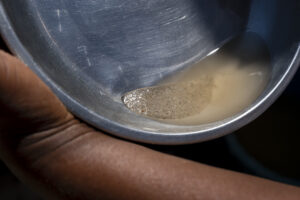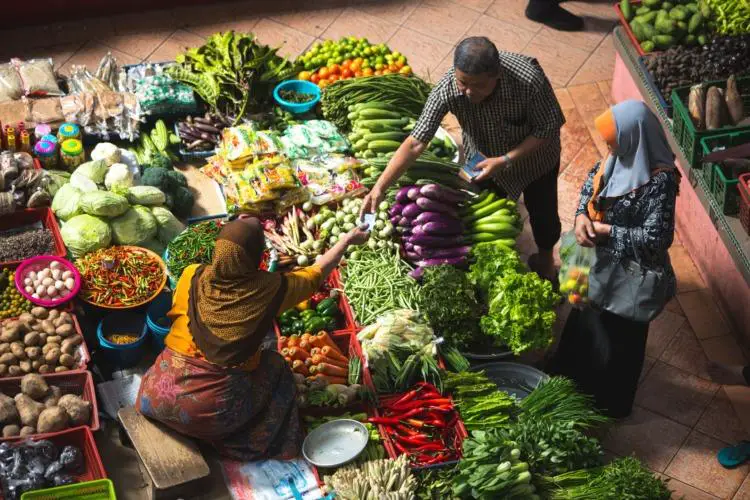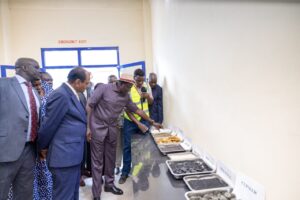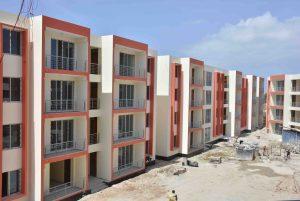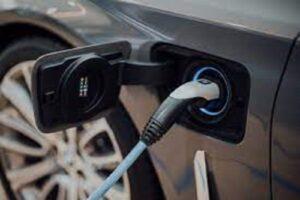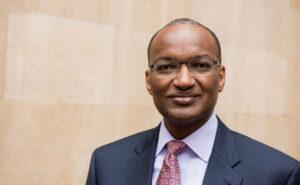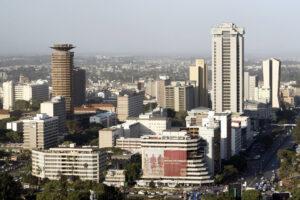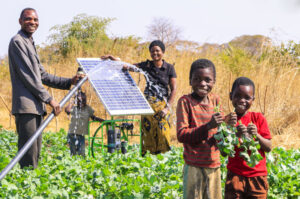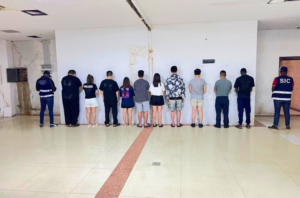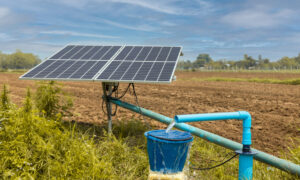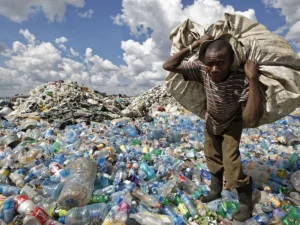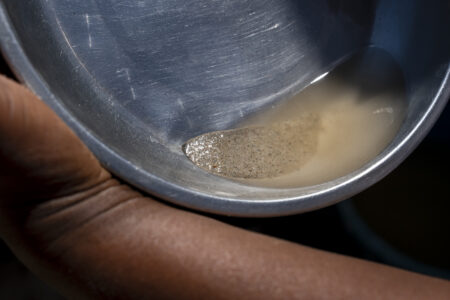- African Energy 2024: Surging investment, waves of change
- AIM Congress 2025: Competition opens doors for Africa’s top tech innovators
- Zimbabwe rolls out $24M project to reduce use of mercury in gold mines
- Zambia secures $184M IMF support as economic growth set to decline to 1.2 per cent
- Equity enters alliance with ODDO BHF to spur Europe-Africa investments
- Air Tanzania hits turbulence: Can the airline fly back to EU skies?
- Ghana’s President Elect John Mahama Outlines His Economic Blueprint
- AfDB backs “green shares” funding model with $30M AFC equity boost
Kenya
- A majority of Kenyan workers are disengaged according to the 2024 edition of Gallup employees survey.
- The survey further shows that men are slightly more engaged than their female counterparts.
- More women (50 per cent) were stressed than men (47 per cent). The junior employees recorded higher stress levels than managers.
A new study shows that for every five employed Kenyans, four lack the drive to go above and beyond in their roles at work.
A recent global survey by Gallup says 80 per cent of Kenyan workers are “disengaged” meaning they only do the bare minimum and are only in their current job because they haven’t found a job opening elsewhere.
‘Disengaged from work’ refers to a lack of emotional or psychological connection to one’s job or workplace.
Disengaged employees typically show low levels of motivation, commitment, and enthusiasm for their work.
At 80 percent, the rate of disengagement …
- Kenya’s $168Bn plundered development loans were taken over 11 year period between 2010 and 2021
- In one instance, the OAG raised an issue with the missing drawdowns for three loans from BELFIUS Bank and Unicredit totaling €29,510,462 (Sh4.1billion).
- The audit examined how 39 commercial loans valued at $168billiom (Sh1.36 trillion) during the time were used, and whether they were borrowed legally.
The Office of the Auditor General has opened a can of worms on the possible diversion of loans and plunder of funds disbursed to Kenya for development over the past 10 years.
A Special Audit by Auditor General Nancy Gathungu, on loans Kenya took between 2010 & 2021 shows that the country received $ 167.7 billion (Sh1.13 trillion) in the consolidated funds accounts however, the accountability of the funds is in question.
The revelations come at a time when President William Ruto has already gazetted the Presidential Taskforce on …
- Kenya’s Political Instability has seen calls for President Ruto’s impeachment, a demand likely to persist soon.
- Reduced capital inflows suggest limited foreign exchange reserves at the central bank’s disposal to support the currency in the near term.
- The analysist say tensions will likely de-escalate in the coming weeks, but expect market sentiments towards Kenya to remain bearish
The Kenyan shilling is expected to face pressure in July due to anticipated declines in capital inflows caused by political instability experts have warned.
The analysist from pan African market insights firm Stears are now saying that following the protests from June 18 to June 27, the currency depreciated by 0.29 per cent slightly dimming economic outlook.
This downward trend is likely to continue amid uncertainties surrounding the President’s push to step down and an upcoming IMF review.
Reduced capital inflows suggest limited foreign exchange reserves at the central bank’s disposal to support …
- The survey was conducted by interviewing over 33,000 customers of all member banks of KBA.
- The results of the survey were released on Wednesday at a media briefing hosted by KBA, at the Sarova Stanley Hotel in Nairobi.
- This re-affirms the bank’s position as the financial institution offering the most fulfilling customer experience in the industry, Group Managing Director & CEO Dr Gideon Muriuki said.
The Co-operative Bank of Kenya has emerged as the overall winner in the Customer Satisfaction Survey conducted by the Kenya Bankers’ Association (KBA).
The survey was conducted by interviewing over 33,000 customers of all member banks of KBA.
The results of the survey were released on Wednesday at a media briefing hosted by KBA, at the Sarova Stanley Hotel in Nairobi, where Co-op Bank was presented with a certificate of recognition for excelling in customer service based on the survey’s findings.
This award comes barely …
- Housing demand in Kenya is estimated at 250,000 units annually.
- With a supply of only 50,000 new houses annually, there is an 80 per cent annual housing deficit.
- President William Ruto has detailed his plan to deliver 200,000 housing units annually.
Kenya has had an ambitious plan to address the housing shortage in the country, with the two past regimes placing affordable housing as one of the key priorities.
Housing demand in Kenya is estimated at 250,000 units annually. With a supply of only 50,000 new houses annually, there is an 80 per cent annual housing deficit.
The previous government led by former President Uhuru Kenyatta had an Affordable Housing Programme that had targeted to deliver at least 500,000 units by last year, but failed way below with less than 10 percent of intended units being delivered by 2022.
President William Ruto has detailed his plan to deliver 200,000 housing …
- Kenya Power is at the center of electric motorization as it has to ensure adequate and reliable electricity supply to spur the growth of this nascent industry.
- GIZ is keen to help Kenya develop a framework that will support a coordinated approach toward the implementation of electric motorization in the country.
- Kenya Power has already announced plans to phase out fossil fuel-powered vehicles and motorbikes from its fleet in favour of electric-powered ones.
Kenya’s ambitious goal to expand the Electric Vehicles (EVs) market has received backing from the Germany government, in what could help the East African nation fast-track adoption of the environmentally friendly units.
More than 300 experts drawn from the energy, finance, and transport sectors, as well as county governments, development partners, and the private sector will meet in Nairobi for an e-mobility conference scheduled for February 7-8. The forum will focus on the road map for electric …
The Central Bank of Kenya (CBK) has retained the base lending rate in the country at 8.75 per cent, citing easing inflationary pressure and positive macroeconomics outlook.
CBK’s decision making organ – Monetary Policy Committee (MPC) met on Monday against a backdrop of a weak global growth outlook, decline in global commodity prices, easing inflationary pressures, geopolitical tensions, persistent uncertainties, and measures taken by authorities around the world in response to these developments.
This includes the back-to-back fed rate hikes witnessed in the US as the country navigated high inflation which hit a peak last year.
Kenya’s overall inflation decreased to 9.1 per cent in December 2022 from 9.5 per cent in November, mainly due to lower food prices.
Food inflation declined to 13.8 per cent in December from 15.4 per cent in November, largely driven by a decrease in prices of maize and milk products.
This is pegged on …
Kenya’s President William Ruto has asked his Cabinet Secretaries to act fast to deliver on his administration’s development programmes, “with speed and efficiency”.
“We made important promises to the people of Kenya, especially those at the bottom of the economic pyramid. And we must deliver,” the president said.
According to Ruto, there are no excuses not to deliver his mandate adding that the government must work as a team and drive the interests of the people.
He was speaking at a cabinet retreat on the implementation of the government’s development priorities for 2023.
In the run up to the August 2022 General Elections, Ruto gave a number of promises under his bottoms-up economic plan.He unveiled a five-point manifesto dubbed ‘The Plan’, which he said would address Kenya’s economic challenges.
Economic recovery in a post-Covid era was one of his main objectives. Ruto also pledged to invest at least Sh250 billion …
- The economy recorded an average growth of 5.6 percent in the period between January to September 2022
- The Country’s Q3’ 2022 Gross Domestic Product (GDP) hit 4.7 percent.
- The growth was largely driven by the non-agricultural sectors
The Kenyan economy recorded an average growth of 5.6 percent in the period between January to September 2022 according to the latest report by Cytonn Investments.
The annual markets report indicates that the country’s third quarter Q3 Gross Domestic Product (GDP) hit 4.7 percent, adding to the 5.2 percent and 6.8 percent growth recorded in Q2 and Q1 respectively.
The average GDP growth of 5.6 percent marked a decline from the 7.7 percent average growth recorded in a similar period in 2021.
“The growth in Q3 was largely driven by the non-agricultural sectors, with accommodation and food, wholesale and retail trade, professional administrative and support, and finance and insurance sectors recording growths of …


